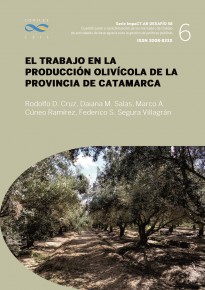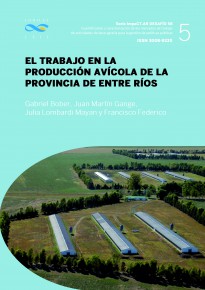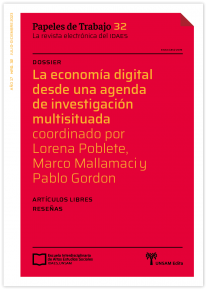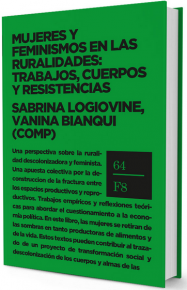![[Capítulo] International Unions as a sphere of working class (re)organization. Anthropological Insights into Latin American Steelworkers / Julia Soul](http://www.ceil-conicet.gov.ar/wp-content/uploads/2022/07/9781003158448.jpg)
[Capítulo] International Unions as a sphere of working class (re)organization. Anthropological Insights into Latin American Steelworkers / Julia Soul
Soul Julia (2022). International Unions as a sphere of working class (re)organization. Anthropological Insights into Latin American Steelworkers. En Kasmir S. y Gill L (eds) The Routledge Handbook of Anthropology of Labor. Routledge Ed
Recent insights in Anthropology of Labor highlight the analytic centrality of unevenness and combination to an accurate understanding of particular social formations (Kalb, D., 2018, “Trotsky over Mauss: Anthropological theory and the October 1917 commemoration.” Dialectical Anthropology 42: 327–343. https://doi.org/10.1007/s10624-018-9525-6; Kasmir, S. and L. Gill, 2018,“No smooth surfaces: The anthropology of unevenness and combination.” Current Anthropology 59, 4: 359–377; Carbonella, A. and S. Kasmir, 2015, “Dispossession, disorganization and the anthropology of labour.” In The Anthropology of Class, edited by D. Kalb and J. Carrier. Cambridge: Cambridge University Press). On the other side, the emergence of a set of global labor institutions draws attention to the shaping of common identities and interests at that level and their implications for working-class dynamics. The paper aims to discuss Latin American working-class organization dynamics through the assessment of the relationships between unions and workers’ collectives, engaging with a current strand of anthropological debate (Dialectical Anthropology special issue, 2020; Zlolniski, C., 2019, Made in Baja: The Lives of Farmworkers and Growers behind Mexico’s Transnational Agricultural Boom. Oakland: University of California Press; Durrenberger, E. P., 2017, Uncertain Times: Anthropological Approaches to Labor in a Neoliberal World. Boulder: University of Colorado Press; Durrenberger and Reichart, 2010, Anthropology of Labor Unions. Boulder: University of Colorado Press). I grasp these dynamics through long-lasting fieldwork with Latin American steelworkers employed by a transnational corporation, encompassing workplace and union relationships at the local, national and international scales. Recently, the formation of a Global Workers Council became a space of encounter between uneven and interconnected groups of steelworkers, which express national working-class traditions and local balances of forces. Based on this extensive fieldwork, I aim to discuss a twofold dimension of global–local relationships in the (re)making of industrial working classes:
The uneven capitalist expansion in Latin American countries that shaped uneven working classes as political subjects vs transnational corporate policies aiming to make a “global collective”, connecting workers from different locations through competition and cooperation relationships.
The constraints to unions’ local dynamics arising from uneven development vs the prescriptive dimension of a Global Organizing Program. It can also be considered as the contrast between two development theses: uneven and combined vs advanced countries as mirroring the future of backward ones.




